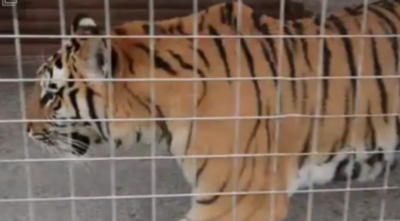Top 13 tips for animal advocates working with law enforcement
Fresh AIR from D.C.: AIReporter Catherine Cowan is in Washington to fill us in on Taking Action for Animals (TAFA), a conference organized by The Humane Society of the United States (HSUS).*
By Catherine Cowan
In a session titled, “How to Work with Local Law Enforcement and Animal Control to Address Animal Cruelty,” Sherry Schlueter, executive director of the HSUS South Florida Wildlife Center and Michelle Welch, assistant attorney general in Virginia provided the following advice to animal advocates.
From Schlueter:
• Know the laws and use them to your advantage. For example, even if a statute does not mention medical care, you may find language that covers neglect in the definition of terms.
• Show little emotion. Stay unbiased, fair and objective.
• Remember that the purpose is to resolve the case in the best interest of the victim. That might mean arrest and seizure of the animal, or it might mean education and assistance.
• Be polite. Ask for the name of the investigating officer, case number, and next steps. If you are getting no help, ask for a superior officer or set up a meeting with the chief.
• If law enforcement has no budget, volunteer assistance such as fostering an animal or paying for veterinary exams. Contact the HSUS or ASPCA to offer reward money.
• Never give up. Remember that one person can make a profound difference.
From Welch:
• While animal advocates are passionate, the average case takes over a year to get to court. Because they can’t be seen as trying the case in the media, prosecutors can’t discuss it until after the trial.
• Don’t come at prosecutors and animal control officers at full force or they won’t want to talk to you. Be respectful.
• Don’t assume everyone has underhanded motives. For example, a Virginia legislator proposed a bill that would have been detrimental to animal welfare because he had been told things that were untrue. When advocates showed him what was untrue, he withdrew it.
• Don’t write letters to the judge. Legal rules require judges to remain fair and impartial, which means they can’t read these communications. If you want to make an impression, show up the court case. Dress appropriately and be respectful.
• If you call a legislator or a prosecutor, be polite. Don’t act like you know more than they do, even if you actually do. Leaving nasty messages won’t garner any sympathy for your side
• Use HSUS state directors. While prosecutors can’t comment on an ongoing case publicly, state directors can. If you can’t get a response out of an official, the state director may be able to.
• Act as a witness. Animal advocates can sometimes collect the evidence needed to get law enforcement an entry into a puppy mill or other animal cruelty situation.
*Besides the HSUS, Taking Action for Animals is sponsored by Big Cat Rescue, Animal Farm Foundation, American Society for Prevention of Cruelty to Animals, and E – The Environment Magazine. Other sponsors include Andy Nahas and the Prospect Fund, Animal Legal Defense Fund, Farm Sanctuary, A Well-Fed World, Alley Cat Allies, Animals and Society Institute, Anti-Fur Society, Compassion over Killing, Humane Society Legislative Fund, Mercy for Animals, Rabbitwise, and World Society for the Protection of Animals.
Catherine Cowan has 18 years of experience in writing, editing, and communications. Starting as a reporter at a small-town newspaper in Indiana, she worked her way up to nation and world news editor at a top newspaper in Kentucky before moving into an editing role at a magazine on issues facing state governments. She has also done communications for a non-profit health care company and a state university research center. She is owned by four rescued and adopted cats and has a long-standing interest in animal issues and human-animal interactions.
Want more fresh AIR from D.C.?
Check out these articles from Catherine Cowan, AIReporter on the scene:
‘Never give up’: Tips for animal advocates working with law enforcement
‘Not everyone is a villain’: Tips for animal adocates working with law enforcement
Who’s in control? Tips on working with law enforcement
Please respect copyright law. Sharing AIR links really helps! But copying more than a couple of paragraphs of content without permission is a no-no. If you’d like to use one of AIR’s articles or one of our photographs, kindly contact us at [airinfo AT yahoo DOT com].
Copyright © 2012 Animal Issues Reporter and AnimalIssuesReporter.org.
All rights reserved.

Leave a Reply